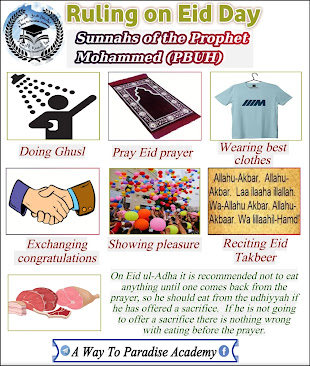Ruling on dying henna and tattoo
Ruling on dyeing henna and tattoo
💎Islam is a religion of beauty and high morals.
In terms of adornment, the things that belong to men are different from the things that belong to women.
And decorating the body by applying drawings or henna dye, is a matter for women only, not men.
And decorating the body by applying drawings or henna dye, is a matter for women only, not men.
-----------------
1)permanent tattoo.(Haram=forbidden)
2)Using chemicals or doing a surgical procedure to change the colour of the entire skin or part of it.(Haram=forbidden)
3)Temporary henna drawing:
Dyeing with henna and the like does not come under this heading. It does not change the colour of the skin, rather it is drawing and decoration and colours that disappear after a while. (Mubah/ja'iz= permissible).
-----------------
💎Allah has permitted women to adorn themselves in this manner on condition that the drawings do not represent animate beings such as humans or animals, and that she does not show this adornment before non-mahram men.
-----------------
١) عَنْ عَائِشَةَ، - رضى الله عنها - قَالَتْ أَوْمَتِ امْرَأَةٌ مِنْ وَرَاءِ سِتْرٍ بِيَدِهَا كِتَابٌ إِلَى رَسُولِ اللَّهِ صلى الله عليه وسلم فَقَبَضَ النَّبِيُّ صلى الله عليه وسلم يَدَهُ فَقَالَ " مَا أَدْرِي أَيَدُ رَجُلٍ أَمْ يَدُ امْرَأَةٍ " . قَالَتْ بَلِ امْرَأَةٌ . قَالَ " لَوْ كُنْتِ امْرَأَةً لَغَيَّرْتِ أَظْفَارَكِ " . يَعْنِي بِالْحِنَّاءِ .
حسن (الألباني)
1)Narrated Aisha, Ummul Mu'minin:
A woman made a sign from behind a curtain to indicate that she had a letter for the Messenger of Allah (ﷺ). The Prophet (ﷺ) closed his hand, saying: I do not know this is a man's or a woman's hand. She said: No, a woman. He said: If you were a woman, you would make a difference to your nails, meaning with henna.
Hasan (Al-Albani)
-----------------
٢)عَنْ أَبِي هُرَيْرَةَ، أَنَّ النَّبِيَّ صلى الله عليه وسلم أُتِيَ بِمُخَنَّثٍ قَدْ خَضَبَ يَدَيْهِ وَرِجْلَيْهِ بِالْحِنَّاءِ فَقَالَ النَّبِيُّ صلى الله عليه وسلم " مَا بَالُ هَذَا " . فَقِيلَ يَا رَسُولَ اللَّهِ يَتَشَبَّهُ بِالنِّسَاءِ . فَأُمِرَ بِهِ فَنُفِيَ إِلَى النَّقِيعِ فَقَالُوا يَا رَسُولَ اللَّهِ أَلاَ نَقْتُلُهُ فَقَالَ " إِنِّي نُهِيتُ عَنْ قَتْلِ الْمُصَلِّينَ " . قَالَ أَبُو أُسَامَةَ وَالنَّقِيعُ نَاحِيَةٌ عَنِ الْمَدِينَةِ وَلَيْسَ بِالْبَقِيعِ .
2)Narrated AbuHurayrah:
Am effeminate man (mukhannath) who had dyed his hands and feet with henna was brought to the Prophet (ﷺ). He asked: What is the matter with this man? He was told: "Messenger of Allah! He imitates the look of women." So he issued an order regarding him and he was banished to an-Naqi'. The people said: Messenger of Allah! Should we not kill him? He said: I have been prohibited from killing people who pray. AbuUsamah said: Naqi' is a region near Medina and not a Baqi'.
Sahih (Al-Albani)




تعليقات
إرسال تعليق